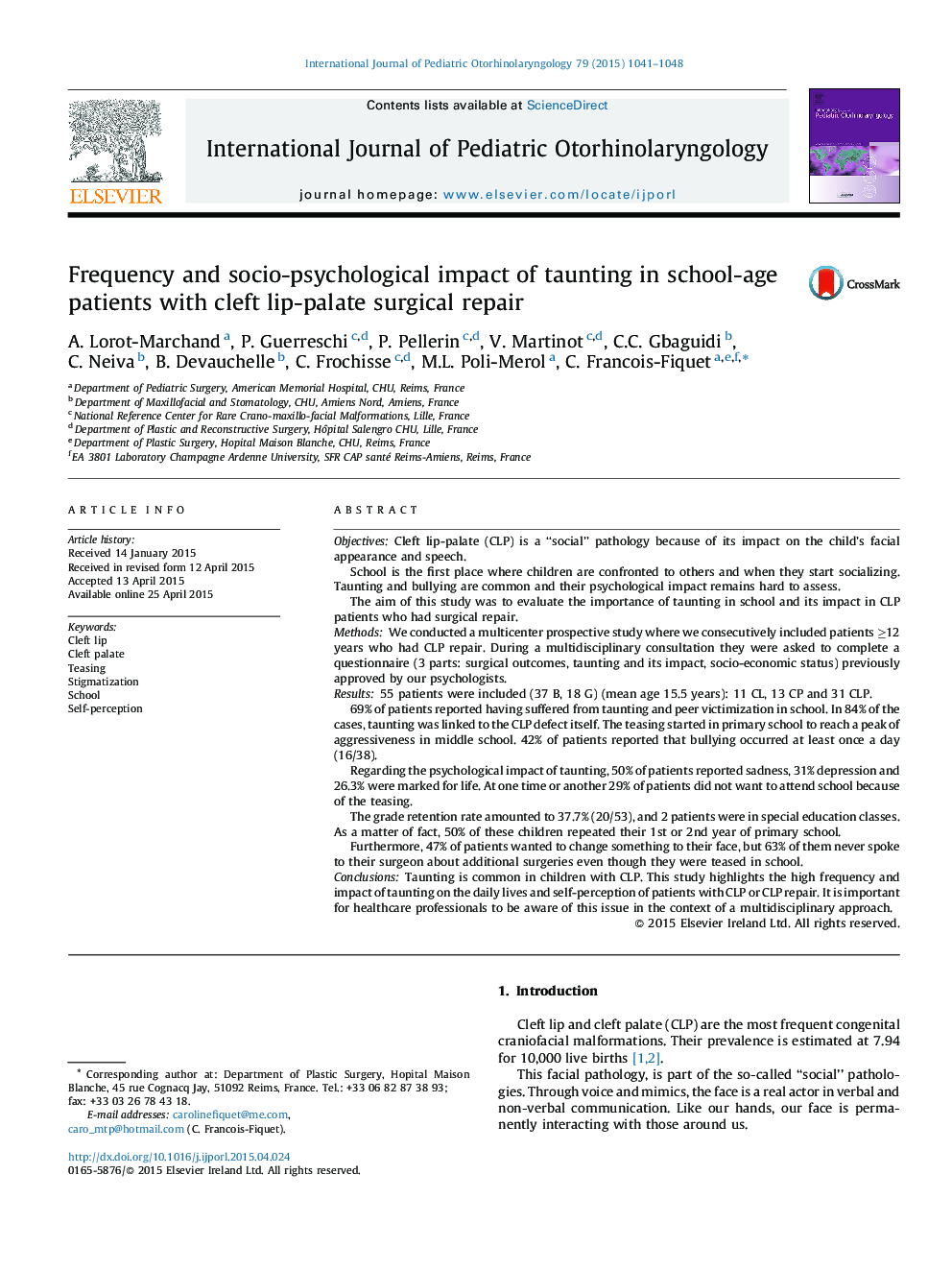| Article ID | Journal | Published Year | Pages | File Type |
|---|---|---|---|---|
| 4112182 | International Journal of Pediatric Otorhinolaryngology | 2015 | 8 Pages |
ObjectivesCleft lip-palate (CLP) is a “social” pathology because of its impact on the child's facial appearance and speech.School is the first place where children are confronted to others and when they start socializing. Taunting and bullying are common and their psychological impact remains hard to assess.The aim of this study was to evaluate the importance of taunting in school and its impact in CLP patients who had surgical repair.MethodsWe conducted a multicenter prospective study where we consecutively included patients ≥12 years who had CLP repair. During a multidisciplinary consultation they were asked to complete a questionnaire (3 parts: surgical outcomes, taunting and its impact, socio-economic status) previously approved by our psychologists.Results55 patients were included (37 B, 18 G) (mean age 15.5 years): 11 CL, 13 CP and 31 CLP.69% of patients reported having suffered from taunting and peer victimization in school. In 84% of the cases, taunting was linked to the CLP defect itself. The teasing started in primary school to reach a peak of aggressiveness in middle school. 42% of patients reported that bullying occurred at least once a day (16/38).Regarding the psychological impact of taunting, 50% of patients reported sadness, 31% depression and 26.3% were marked for life. At one time or another 29% of patients did not want to attend school because of the teasing.The grade retention rate amounted to 37.7% (20/53), and 2 patients were in special education classes. As a matter of fact, 50% of these children repeated their 1st or 2nd year of primary school.Furthermore, 47% of patients wanted to change something to their face, but 63% of them never spoke to their surgeon about additional surgeries even though they were teased in school.ConclusionsTaunting is common in children with CLP. This study highlights the high frequency and impact of taunting on the daily lives and self-perception of patients with CLP or CLP repair. It is important for healthcare professionals to be aware of this issue in the context of a multidisciplinary approach.
